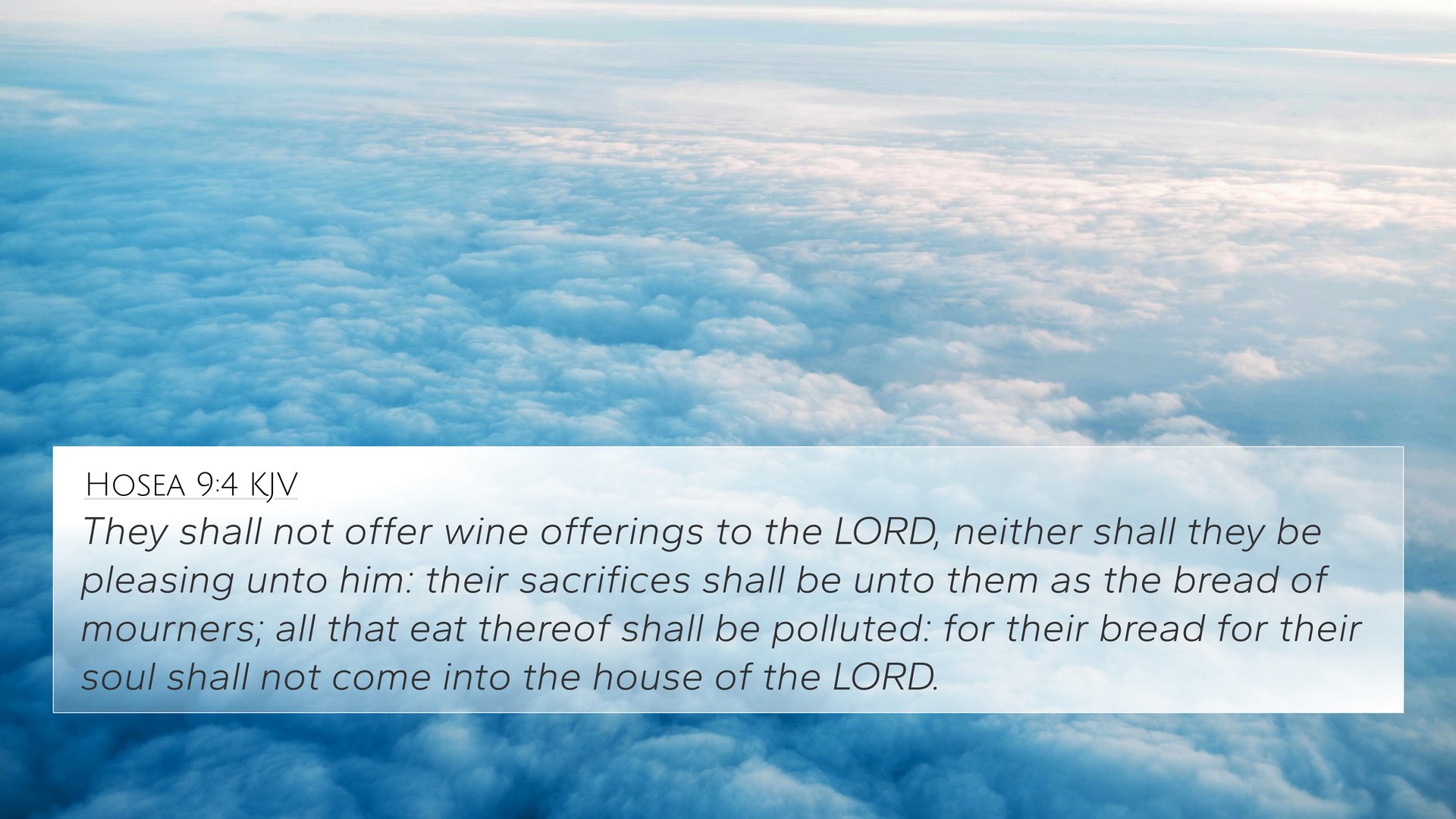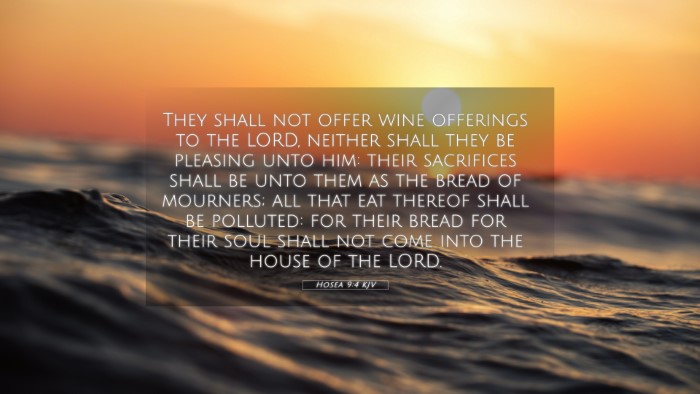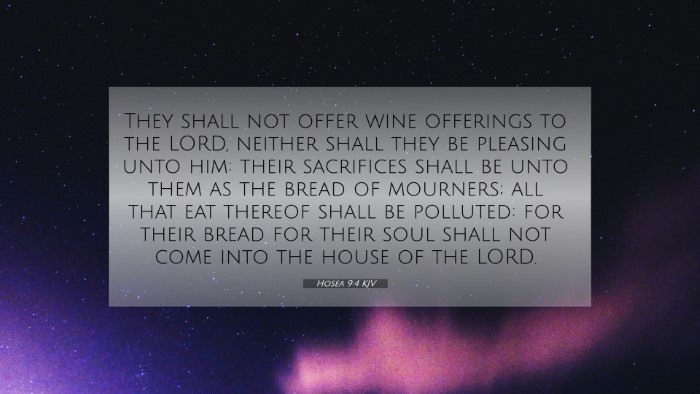Old Testament
Genesis Exodus Leviticus Numbers Deuteronomy Joshua Judges Ruth 1 Samuel 2 Samuel 1 Kings 2 Kings 1 Chronicles 2 Chronicles Ezra Nehemiah Esther Job Psalms Proverbs Ecclesiastes Song of Solomon Isaiah Jeremiah Lamentations Ezekiel Daniel Hosea Joel Amos Obadiah Jonah Micah Nahum Habakkuk Zephaniah Haggai Zechariah MalachiHosea 9:4 Similar Verses
Hosea 9:4 Cross References
They shall not offer wine offerings to the LORD, neither shall they be pleasing unto him: their sacrifices shall be unto them as the bread of mourners; all that eat thereof shall be polluted: for their bread for their soul shall not come into the house of the LORD.
Uncover the Rich Themes and Topics of This Bible Verse
Listed below are the Bible themes associated with Hosea 9:4. We invite you to explore each theme to gain deeper insights into the Scriptures.
Hosea 9:4 Cross Reference Verses
This section features a detailed cross-reference designed to enrich your understanding of the Scriptures. Below, you will find carefully selected verses that echo the themes and teachings related to Hosea 9:4 KJV. Click on any image to explore detailed analyses of related Bible verses and uncover deeper theological insights.
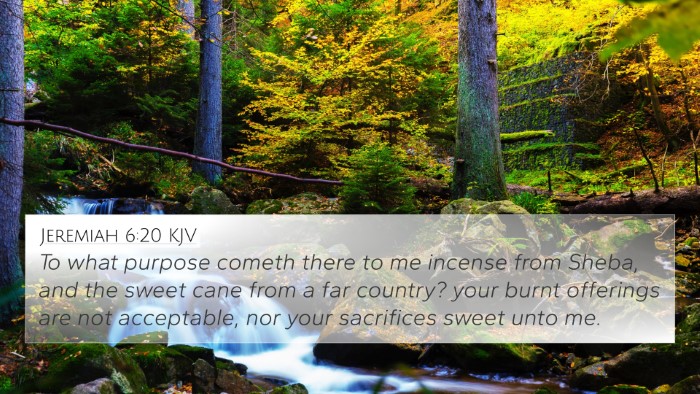
Jeremiah 6:20 (KJV) »
To what purpose cometh there to me incense from Sheba, and the sweet cane from a far country? your burnt offerings are not acceptable, nor your sacrifices sweet unto me.
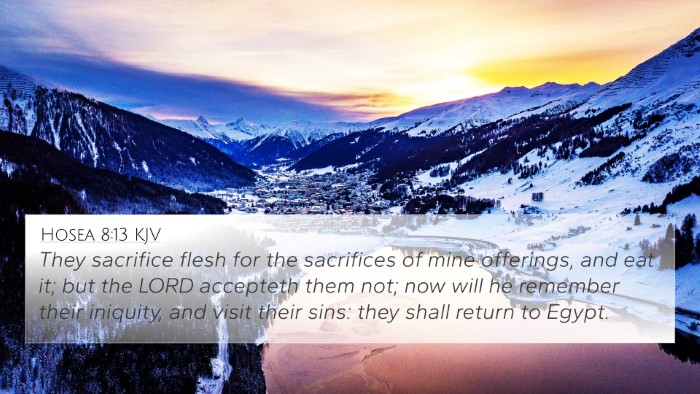
Hosea 8:13 (KJV) »
They sacrifice flesh for the sacrifices of mine offerings, and eat it; but the LORD accepteth them not; now will he remember their iniquity, and visit their sins: they shall return to Egypt.
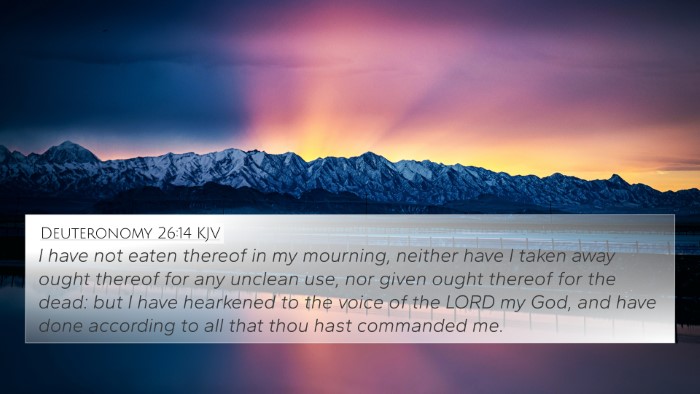
Deuteronomy 26:14 (KJV) »
I have not eaten thereof in my mourning, neither have I taken away ought thereof for any unclean use, nor given ought thereof for the dead: but I have hearkened to the voice of the LORD my God, and have done according to all that thou hast commanded me.
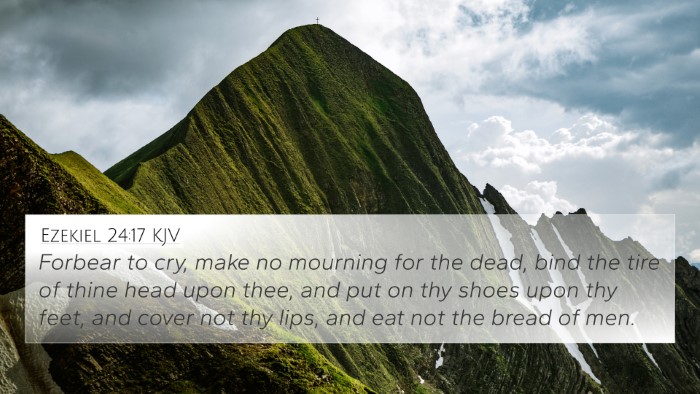
Ezekiel 24:17 (KJV) »
Forbear to cry, make no mourning for the dead, bind the tire of thine head upon thee, and put on thy shoes upon thy feet, and cover not thy lips, and eat not the bread of men.
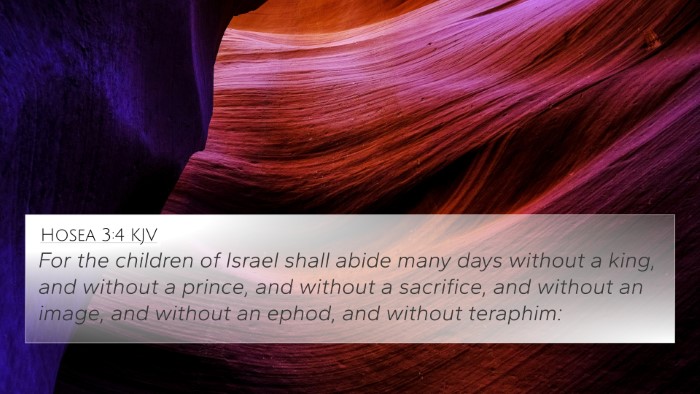
Hosea 3:4 (KJV) »
For the children of Israel shall abide many days without a king, and without a prince, and without a sacrifice, and without an image, and without an ephod, and without teraphim:
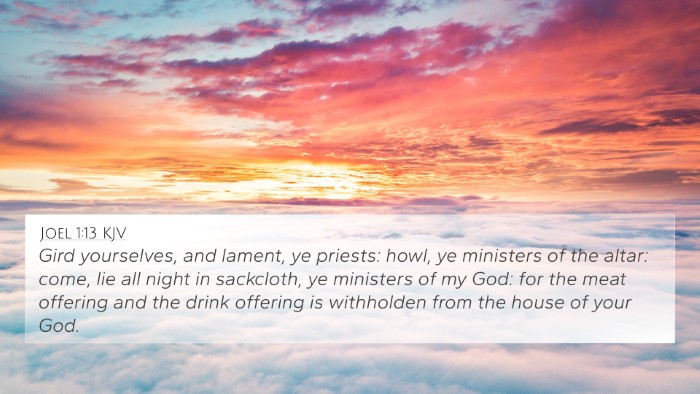
Joel 1:13 (KJV) »
Gird yourselves, and lament, ye priests: howl, ye ministers of the altar: come, lie all night in sackcloth, ye ministers of my God: for the meat offering and the drink offering is withholden from the house of your God.
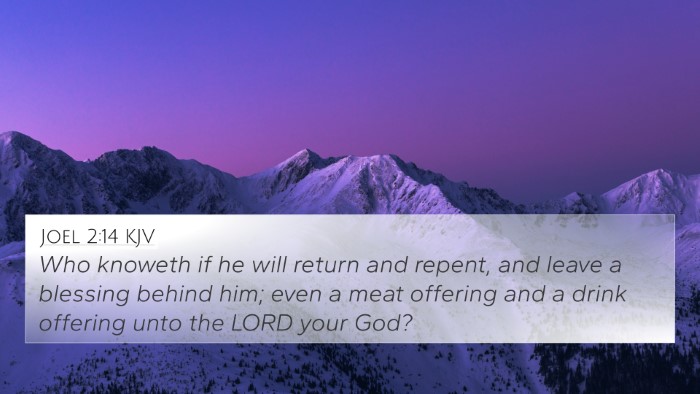
Joel 2:14 (KJV) »
Who knoweth if he will return and repent, and leave a blessing behind him; even a meat offering and a drink offering unto the LORD your God?
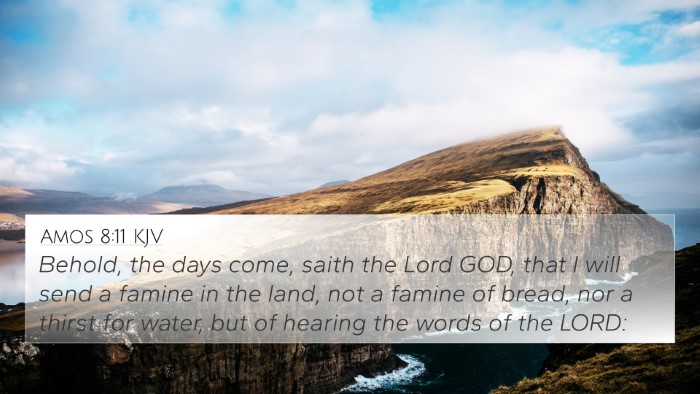
Amos 8:11 (KJV) »
Behold, the days come, saith the Lord GOD, that I will send a famine in the land, not a famine of bread, nor a thirst for water, but of hearing the words of the LORD:
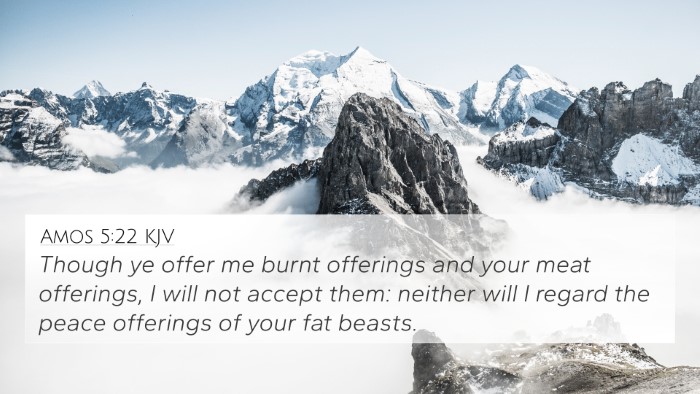
Amos 5:22 (KJV) »
Though ye offer me burnt offerings and your meat offerings, I will not accept them: neither will I regard the peace offerings of your fat beasts.
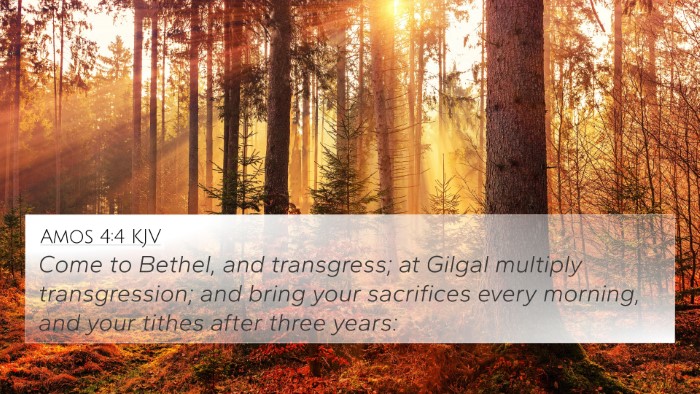
Amos 4:4 (KJV) »
Come to Bethel, and transgress; at Gilgal multiply transgression; and bring your sacrifices every morning, and your tithes after three years:
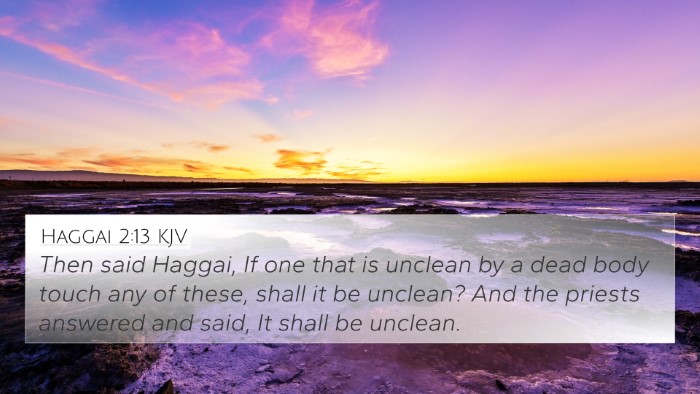
Haggai 2:13 (KJV) »
Then said Haggai, If one that is unclean by a dead body touch any of these, shall it be unclean? And the priests answered and said, It shall be unclean.

Malachi 2:13 (KJV) »
And this have ye done again, covering the altar of the LORD with tears, with weeping, and with crying out, insomuch that he regardeth not the offering any more, or receiveth it with good will at your hand.
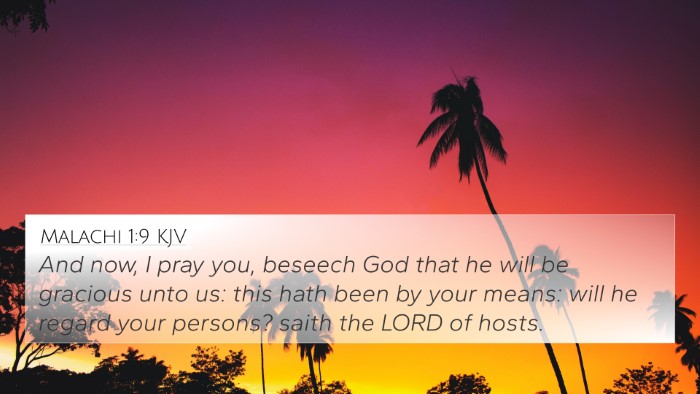
Malachi 1:9 (KJV) »
And now, I pray you, beseech God that he will be gracious unto us: this hath been by your means: will he regard your persons? saith the LORD of hosts.
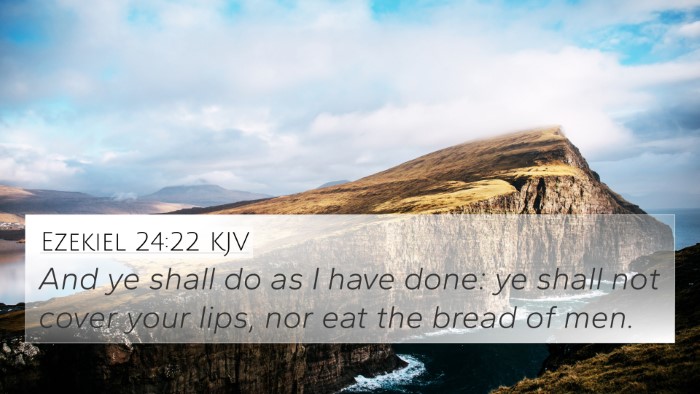
Ezekiel 24:22 (KJV) »
And ye shall do as I have done: ye shall not cover your lips, nor eat the bread of men.
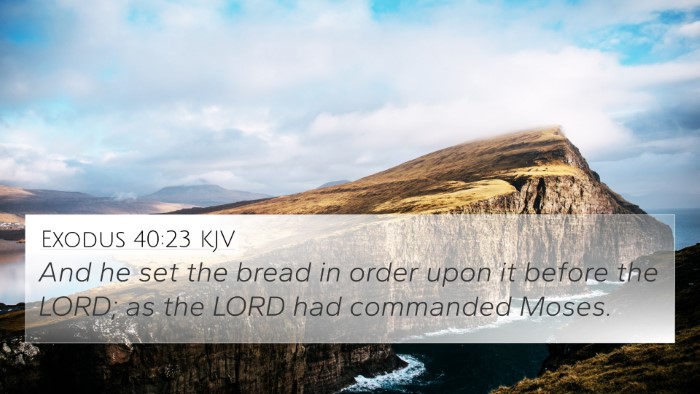
Exodus 40:23 (KJV) »
And he set the bread in order upon it before the LORD; as the LORD had commanded Moses.
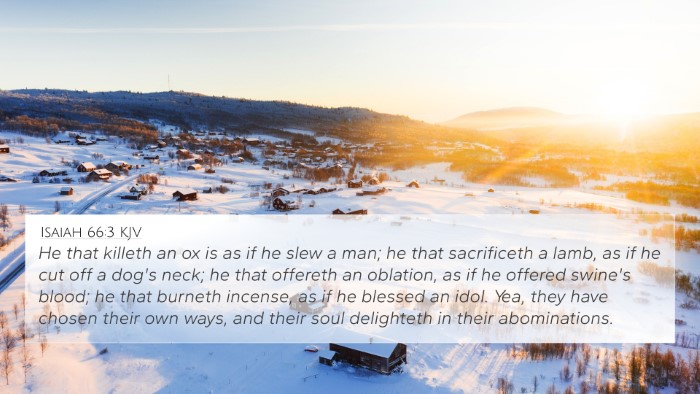
Isaiah 66:3 (KJV) »
He that killeth an ox is as if he slew a man; he that sacrificeth a lamb, as if he cut off a dog's neck; he that offereth an oblation, as if he offered swine's blood; he that burneth incense, as if he blessed an idol. Yea, they have chosen their own ways, and their soul delighteth in their abominations.
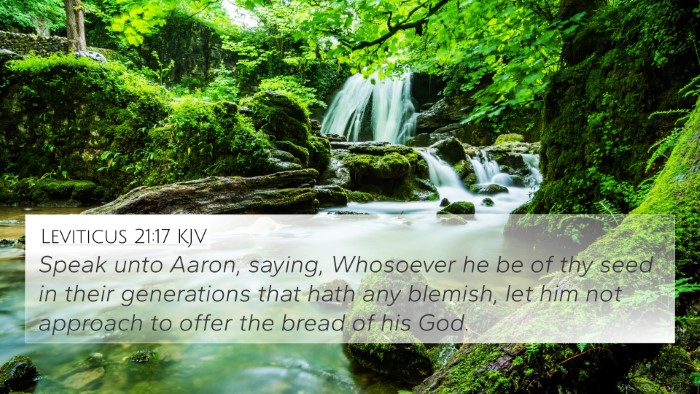
Leviticus 21:17 (KJV) »
Speak unto Aaron, saying, Whosoever he be of thy seed in their generations that hath any blemish, let him not approach to offer the bread of his God.
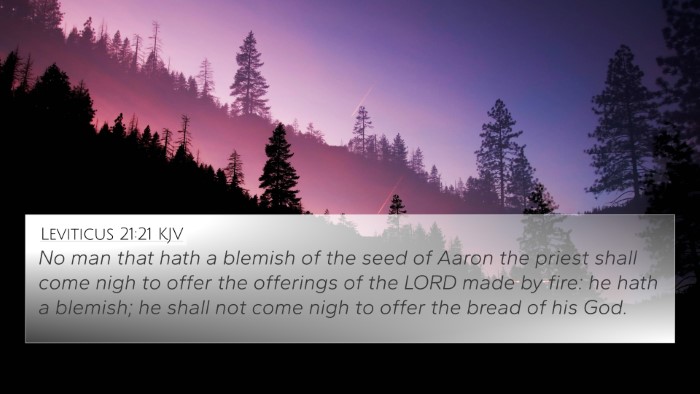
Leviticus 21:21 (KJV) »
No man that hath a blemish of the seed of Aaron the priest shall come nigh to offer the offerings of the LORD made by fire: he hath a blemish; he shall not come nigh to offer the bread of his God.
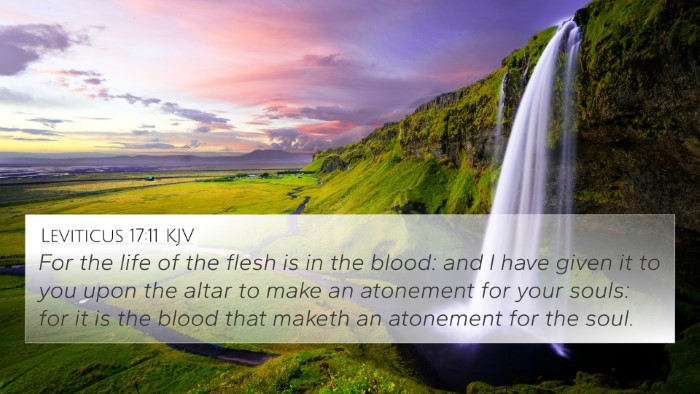
Leviticus 17:11 (KJV) »
For the life of the flesh is in the blood: and I have given it to you upon the altar to make an atonement for your souls: for it is the blood that maketh an atonement for the soul.
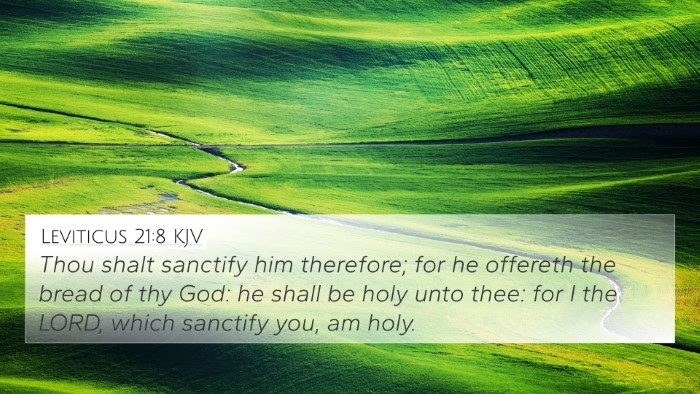
Leviticus 21:8 (KJV) »
Thou shalt sanctify him therefore; for he offereth the bread of thy God: he shall be holy unto thee: for I the LORD, which sanctify you, am holy.
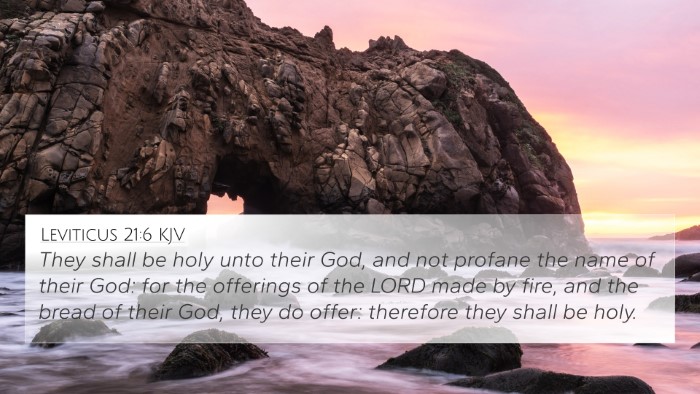
Leviticus 21:6 (KJV) »
They shall be holy unto their God, and not profane the name of their God: for the offerings of the LORD made by fire, and the bread of their God, they do offer: therefore they shall be holy.
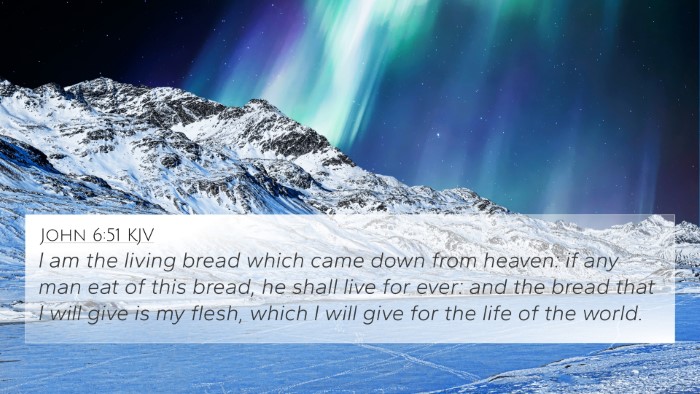
John 6:51 (KJV) »
I am the living bread which came down from heaven: if any man eat of this bread, he shall live for ever: and the bread that I will give is my flesh, which I will give for the life of the world.
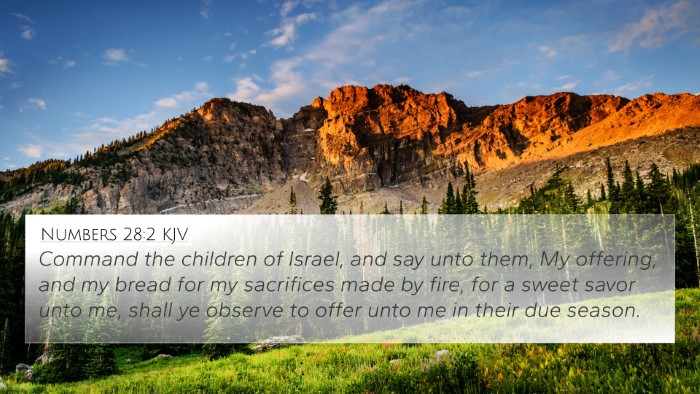
Numbers 28:2 (KJV) »
Command the children of Israel, and say unto them, My offering, and my bread for my sacrifices made by fire, for a sweet savor unto me, shall ye observe to offer unto me in their due season.
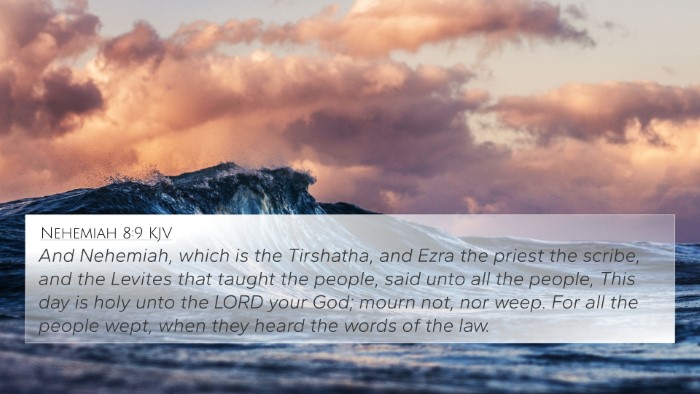
Nehemiah 8:9 (KJV) »
And Nehemiah, which is the Tirshatha, and Ezra the priest the scribe, and the Levites that taught the people, said unto all the people, This day is holy unto the LORD your God; mourn not, nor weep. For all the people wept, when they heard the words of the law.
Hosea 9:4 Verse Analysis and Similar Verses
Understanding Hosea 9:4
Hosea 9:4 states, "They shall not offer wine offerings to the LORD, neither shall they be pleasing unto him: their sacrifices shall be unto them as the bread of mourners; all that eat thereof shall be polluted: for their bread for their soul shall not come into the house of the LORD." This verse speaks to the futility of offerings made under conditions of sin and the spiritual decay of Israel at that time. Through a combination of insights from various public domain commentaries, we can draw a deeper understanding of this passage.
Contextual Background
The historical context of Hosea's prophecy is essential for understanding this passage. During Hosea's time, Israel had turned away from God, engaging in idolatry and immorality. This rejection of divine covenant led to a state in which their religious rituals became hollow and meaningless. As Matthew Henry notes, the sacrifices that were meant to honor God had become corrupted, rendering them unacceptable.
The Meaning of "Wine Offerings"
The term "wine offerings" in this verse refers to ritual sacrifices that are no longer pleasing to the LORD. Albert Barnes explains that Israel, in their disobedience, could not expect their worship to be received. Their hearts were far from God. Thus, the wine offerings, representing joy and gratitude, had become expressions of futility and insincerity. They were devoid of true worship.
Bread of Mourners
The phrase "bread of mourners" indicates offerings that come from sorrow and regret rather than joy and praise. Adam Clarke emphasizes that this reference illustrates how the remnants of their worship are tainted by their unfaithfulness. The references to pollution suggest that engaging in these practices only deepens their separation from God.
Theological Implications
This passage highlights several key biblical themes:
- God’s Holiness: God can only accept sacrifices that come from a sincere heart.
- Sin and Consequence: Sin corrupts worship, making it unacceptable to God.
- True Worship: Requires a pure heart; external acts alone cannot substitute for genuine devotion.
Cross-References for Hosea 9:4
There are multiple Bible verses that relate closely to the themes presented in Hosea 9:4. Below are 10 relevant cross-references providing further insights into this concept of worship and sacrifice:
- Isaiah 1:11-13: Critiques empty sacrifices and emphasizes true devotion.
- Amos 5:21-24: God despises ritualistic worship devoid of justice.
- Micah 6:6-8: Calls for true humility, justice, and mercy over mere offerings.
- Malachi 1:6-14: Discusses the dishonor brought upon God through insincere worship.
- Psalm 51:16-17: God desires a broken spirit rather than sacrifices.
- James 1:27: Outlines true religion as visiting orphans and widows.
- Matthew 5:23-24: Encourages reconciliation over mere sacrifice.
- Romans 12:1: Calls believers to present their bodies as living sacrifices.
- Hebrews 13:15-16: Highlights praise and good deeds as sacrifices pleasing to God.
- Colossians 3:23-24: Encourages heartfelt service as a form of worship to God.
Application and Reflection
The essence of Hosea 9:4 is a reminder for believers that God desires sincerity over ritual. Our modern worship should also align with our inner devotion to God. We can reflect on a few essential applications:
- Assess the authenticity of our worship—are we offering what pleases God?
- Seek ways to engage in acts of service that demonstrate our faith.
- Identify and eliminate any practices in our lives that serve as mere rituals.
Conclusion
Hosea 9:4 serves as a profound reminder of the importance of sincere worship and the dangers of mere ritualism. By examining this verse and its cross-references, believers can cultivate a deeper relationship with God that transcends superficiality. Every act of worship should stem from a truly repentant and devoted heart, aligning with the desires of our Creator.
Further Study Resources
For those looking to deepen their understanding, various tools for Bible cross-referencing such as resources based on a Bible concordance or a Bible cross-reference guide can be helpful. Engaging in cross-reference Bible study methods will further facilitate an intricate understanding of how various verses connect across both the Old and New Testaments.
